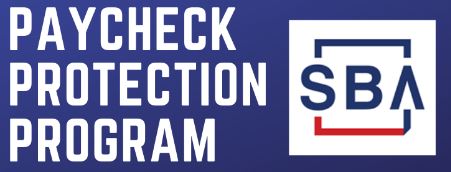PPP Good Faith Certifications for Loans Less Than $2 Million

 The SBA and U.S. Department of the Treasury published an updated PPP FAQ document today including a new #46 (see below). It provides additional clarification about how SBA will review borrowers’ required good-faith certification concerning the necessity of their loan request.
The SBA and U.S. Department of the Treasury published an updated PPP FAQ document today including a new #46 (see below). It provides additional clarification about how SBA will review borrowers’ required good-faith certification concerning the necessity of their loan request.Items of significance include:
- A safe harbor that borrowers who received a PPP loan of less than $2m will be deemed to have made the required certifications in good faith and will not be subject to review.
- For loans over $2m that are reviewed, if SBA determines that a borrower lacked adequate basis for the necessity of the loan request, SBA will seek repayment of the outstanding PPP loan balance and will inform the lender that the borrower is not eligible for loan forgiveness.
-
- If the borrower repays the loan after receiving notification from SBA, SBA will not pursue administrative enforcement or referrals to other agencies based on its determination with respect to the certification concerning necessity of the loan request.
This guidance is intended to provide some comfort to borrowers who were uncertain about how the reviews previously described in FAQ #39 would be conducted, and therefore promote economic activity.
The full text of the new FAQ reads as follows:
46. Question: How will SBA review borrowers’ required good-faith certification concerning the necessity of their loan request?
Answer: When submitting a PPP application, all borrowers must certify in good faith that “current economic uncertainty makes this loan request necessary to support the ongoing operations of the Applicant.” SBA, in consultation with the Department of the Treasury, has determined that the following safe harbor will apply to SBA’s review of PPP loans with respect to this issue: Any borrower that, together with its affiliates*, received PPP loans with an original principal amount of less than $2 million will be deemed to have made the required certification concerning the necessity of the loan request in good faith.
SBA has determined that this safe harbor is appropriate because borrowers with loans below this threshold are generally less likely to have had access to adequate sources of liquidity in the current economic environment than borrowers that obtained larger loans. This safe harbor will also promote economic certainty as PPP borrowers with more limited resources endeavor to retain and rehire employees. In addition, given the large volume of PPP loans, this approach will enable SBA to conserve its finite audit resources and focus its reviews on larger loans, where the compliance effort may yield higher returns.
Importantly, borrowers with loans greater than $2 million that do not satisfy this safe harbor may still have an adequate basis for making the required good-faith certification, based on their individual circumstances in light of the language of the certification and SBA guidance. SBA has previously stated that all PPP loans in excess of $2 million, and other PPP loans as appropriate, will be subject to review by SBA for compliance with program requirements set forth in the PPP Interim Final Rules and in the Borrower Application Form. If SBA determines in the course of its review that a borrower lacked an adequate basis for the required certification concerning the necessity of the loan request, SBA will seek repayment of the outstanding PPP loan balance and will inform the lender that the borrower is not eligible for loan forgiveness. If the borrower repays the loan after receiving notification from SBA, SBA will not pursue administrative enforcement or referrals to other agencies based on its determination with respect to the certification concerning necessity of the loan request. SBA’s determination concerning the certification regarding the necessity of the loan request will not affect SBA’s loan guarantee.
*For purposes of this safe harbor, a borrower must include its affiliates to the extent required under the interim final rule on affiliates, 85 FR 20817 (April 15, 2020).
We will continue to monitor this for additional updates and keep you informed. Please visit the COVID-19 section of the Whalen & Company website or contact your Whalen advisor for additional details regarding this announcement.
